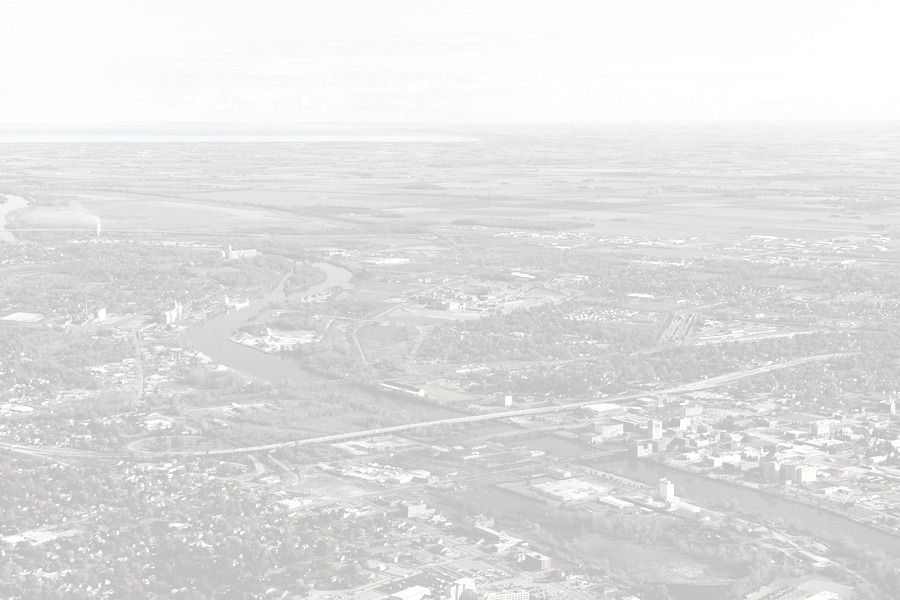

Impact You Can See —
Place
Experience how sustained commitment and steady progress transform places and create lasting economic growth for communities.
Flint Commerce Center
Flint Commerce Center—once the vast Buick City brownfield—emerged through a public-private partnership that remediated the site and cleared it for redevelopment, supported by $5.9 million in MEDC Strategic Site Readiness Program (SSRP) funds for storm-sewer infrastructure, along with ARPA contributions from Genesee County and the City of Flint, an $8.5 million loan from the Michigan Strategic Fund, and $2 million from the Mott Foundation. The Detroit Regional Partnership’s Verified Industrial Properties (VIP) program expedited the project by delivering diligence-ready data on utilities, site conditions, and zoning, dramatically boosting marketability and enabling swift development
The Next Center
Lakeshore Advantage successfully developed and opened the Next Center in downtown Holland, an innovation hub with over $11 million in total project investment funded through an $8 million state incubator grant, $1 million in Holland SmartZone support, $600,000 in Brownfield TIF reimbursement, and over $2 million from private investors. The 20,000-square-foot facility housed Lakeshore Advantage's new headquarters alongside incubator spaces for up to 50 startup tenants.
Small Town Enhancement Grant
The revitalization and placemaking program brought nearly $90,000 in targeted investments to rural communities across the Lansing region, transforming public spaces into hubs of pride and connection. From restored historic bell towers in Vermontville to vibrant facades in Maple Rapids, community spaces have been revitalized. These projects weren’t just upgrades, but they rekindled community pride and spurred economic activity.
Your Strategic HR partner: Flint & Genesee Education & Talent
Flint & Genesee Education & Talent successfully partnered with Miller Industries, a growing Fenton-based manufacturer, through the Make Your Move talent attraction initiative and comprehensive workforce development programs including Flinterns, Summer Youth Initiative, and TeenQuest. The partnership provided Miller Industries with recruiting support, marketing tools, customized training, and access to high school interns at reduced costs, demonstrating how Education & Talent's strategic HR services help companies scale their workforce while building Genesee County's talent pipeline from high school through career placement.
Three Towers Project
The Three Towers project in downtown Grand Rapids is a bold mixed-use development comprising a hotel with condos, a residential tower, and an office building, all poised to transform the city's riverfront skyline with over 600 housing units and significant commercial space. The project is enabled through the state’s Transformational Brownfield Program—allowing developers to recapture a portion of state and local taxes over time, positioning it to drive both urban revitalization and economic returns.
Holland Community Ice Skating Park
The $11 million Holland Community Ice Skating Park, now in its final phase of construction and scheduled to open this winter, received $800,000 from the Michigan Economic Development Corporation’s (MEDC) Revitalization and Placemaking (RAP) Program. Funded through the American Rescue Plan to address COVID-19’s economic impacts, these state dollars were combined with private donations and city resources to create a year-round refrigerated ice facility with heated sidewalks. The project will support downtown businesses in the winter and transform an underutilized waterfront area into a four-season tourism attraction.
Mixed-use Developments, A Winning Recipe
Genesee County is seeing major mixed-use growth through projects blending public and private investment. Flint’s $41 million LiveWell on Harrison, debt-free thanks to an $11 million Mott Foundation gift and state/local partners, will feature a YMCA, apartments, and wellness services. Fenton’s $4 million 113 Mill Street and Grand Blanc’s $11 million Garden Building—both supported by the Michigan Economic Development Corporation and local governments—add retail, housing, and community space to their downtowns.
Broadway Park West (Lower Town Riverfront Conservancy)
A $1 million grant from the Michigan Economic Development Corporation will enable construction of an 8,800 sq ft LEED-certified pavilion as part of the Broadway Park West development—the largest brownfield redevelopment in Washtenaw County. This investment is revitalising a seven-acre riverfront area, fostering public engagement and promising long-term gains in local tax revenues and community vibrancy.
Negaunee Downtown Enhancement Project
Negaunee’s $3.4 million Downtown Enhancement Project, backed by an $885,000 RAP grant, is revitalizing the city’s core with infrastructure upgrades, expanded connectivity, and six new social hubs. These spaces honor local heritage and create walkable, engaging places that attract residents, visitors, and investment.
Ore Dock Revitalization Project
With the help of a $3.9 million RAP grant, Ore Dock Brewing is transforming a long-vacant building in downtown Marquette into housing, gathering spaces, and expanded brewery operations. The $7.8 million project blends historic preservation with placemaking, driving foot traffic, supporting local business, and keeping downtown vibrant.
Reimagined Arcadia Creek Festival Site
Kalamazoo’s Arcadia Creek Festival Place redevelopment will use the MEDC’s Public Spaces Community Places crowdfunding program to complement $4 million already raised through local fundraising and grants. The downtown revitalization project, scheduled to begin construction in spring 2026, will enhance the city’s premier festival site and strengthen community engagement.
Chippewa County EDC - Chippewa County Manufacturing and Logistics Hub
The Chippewa County EDC built a 20,000 sf manufacturing facility in Kincheloe industrial Park that serves as a transportation and logistics hub for Maple Transport, Inc., with space for up to three tenants. Backed by federal, state, and local funding, the project added rail access, extended municipal utilities, and improved site circulation. The investment supported immediate job creation and long-term competitiveness in the U.P.’s forest products supply chain.
